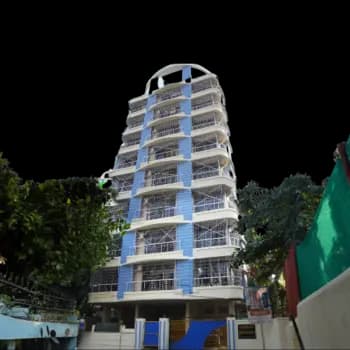How can one cope with cannabis addiction?


Marijuana is used on quite a large scale in India, even though marijuana is banned in the country. Some people still manage to use the substance and are becoming obsessive and problematic, making it difficult for them to cease. When people develop a significant Marijuana Addiction over time, they may have unpleasant withdrawal symptoms when they try to quit, making the early stages of rehabilitation much more challenging.

Despite certain challenges, quitting marijuana is feasible, and professional drug abuse therapy has helped many people manage withdrawal and recover from marijuana- related substance use disorders and have gotten rid of cannabis addiction signs and symptoms. Learn more about the dangers of marijuana usage and how to quit using it in the sections below.
What Are the Effects Of Marijuana Addiction On The Brain?
Cannabis use regularly has several risks. Cannabis users are more prone to acquire a cannabis use disorder if they consume the drug regularly. Marijuana has also been connected to a variety of physical and mental health issues.
Marijuana's psychotropic components interact with the brain in a variety of ways. The major psychoactive chemical component present in cannabis is tetrahydrocannabinol (THC).
THC affects the parts of the brain that govern mood, memory, thinking, and attention among users.
For some people, these are some cannabis addiction signs and symptoms Nervousness
- Aggression
- Sensory perception distortions
- An altered perception of time (e.g., subjectively slow passing of time)
- Decreased appetite
Do you feel like you're ready to give up cannabis right now? Here are some broad guidelines to follow for cannabis addiction treatment:
Get rid of your belongings-
Keeping a stash of cannabis and smoking utensils on hand might make quitting more difficult. You prohibit quick access by tossing it away or passing it on, which might help you avoid slip-ups during the withdrawal phase.
Make a strategy for dealing with triggers-
Triggers may be quite strong. Even if you resolve to quit smoking, some triggers that you connect with doing so may trigger cravings. Experts at any drug and alcohol rehabilitation centre in Pune and Mumbai will help you with tips to manage triggers.
Enlist the help of family and friends
Friends and relatives who are aware that you do not wish to continue smoking can help by:
- encouraging you to consider hobbies and diversions
- encouraging you when withdrawals and cravings are rough
- practising coping strategies with you, such as physical exercise or meditation
Take up a new hobby-
If you smoke to pass the time when you're bored, consider doing something different. Consider doing hobbies such as model building or handicrafts. If your old interests no longer intrigue you, try something new like rock climbing, paddle boarding, or learning a new language.
Cognitive Behavioral Therapy-
CBT is a form of treatment (CBT) and has been taught to the majority of therapists. This treatment technique at a de-addiction centre in Mumbai teaches you how to recognize and address unwanted or uncomfortable ideas and feelings, as well as how to manage them.
Motivational Enhancement Treatment-
It entails analysing your motivations for quitting cannabis. Rather than attempting to address any underlying issues that contribute to your marijuana use, your therapist will assist you in exploring and prioritising objectives related to your use, generally using open-ended inquiries.
Professional therapy may provide patients with the assistance and care they need to better handle the withdrawal phase, which may be a major roadblock to long-term recovery. Jagruti Rehabilitation centre is a prime drug and alcohol rehabilitation centre in Mumbai which has experience in providing the right care for your recovery.
Book a Confidential Consultation with Our Experts
Our team of medical professionals is there to hear and guide you towards the right treatment plan. Get the right professional advice, instant support and confidential consultations with recovery plans especially tailored to your needs.











